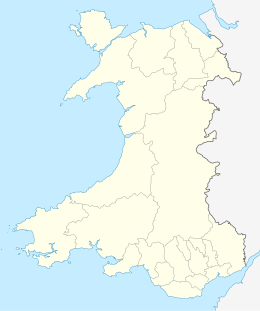Skomer
| Native name: Ynys Sgomer | |
|---|---|

A map showing Skomer Island
|
|
| Geography | |
| Location | Jack Sound |
| Coordinates | 51°44′10″N 5°17′47″W / 51.73611°N 5.29628°W |
| Area | 2.92 km2 (1.13 sq mi) |
| Length | 3.2 km (1.99 mi) |
| Width | 2.4 km (1.49 mi) |
| Administration | |
|
Wales
|
|
| County | Pembrokeshire |
| Demographics | |
| Ethnic groups | Welsh people |
Skomer (Welsh: Ynys Sgomer) is an island off the coast of Pembrokeshire in west Wales. It is well known for its wildlife: around half the world's population of Manx shearwaters nest on the island, the Atlantic puffin colony is the largest in southern Britain, and the Skomer vole (a subspecies of the bank vole) is unique to the island. It is also known for its archeological interest: stone circles, standing stone and remains of prehistoric houses. Skomer is a national nature reserve, a Site of Special Scientific Interest and a Special Protection Area. Much of the island has also been designated an ancient monument. It is surrounded by a marine nature reserve and is managed by the Wildlife Trust of South and West Wales. There is now a hostel on the island so visitors can remain on Skomer after day trippers have taken the boat home.
The island has an area of 2.92 km2 (1.13 sq mi). Its highest point is 79 m (259 ft) above sea level at Gorse Hill, while the majority of the island sits at around 60 m (200 ft) above sea level. Skomer is intersected by a series of slopes and ridges giving it a rich and varied topography. It is approximately 2.4 km (1.5 mi) from north–south and 3.2 km (2.0 mi) east–west. The island is almost cut in two near its eastern side by two bays. It is one of several islands lying within a kilometre of the Pembrokeshire coast and separated from the mainland by the treacherous waters of Jack Sound. Three islets surround Skomer: Mew Stone (60 metres, 197 feet), Midland Isle, (50 metres, 164 feet), and Garland Stone, (32 metres, 105 feet).
...
Wikipedia

